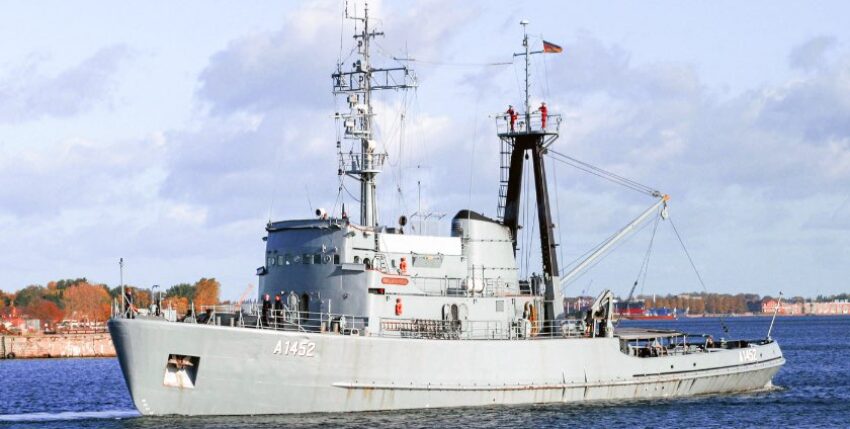Private Public Partnership was the magic word at the beginning of the 2000s; the concept was promised as the saviour for services in the public sector. Essentially, the idea was to privatise services provided by the state and public authorities - in themselves, mind you - in order to make them leaner, more efficient and, above all, profitable. Despite the transfer of the operational business, the federal government was to retain full or at least majority control over the shares of the newly created companies and thus the profits. The Federal Ministry of Defence (BMVg) also acquired a taste for this at the time: For example, the tasks of the Bundeswehr's clothing checkout were taken over by LH Bundeswehr Bekleidungsgesellschaft, all vehicles that are not "purely military" are managed by the company Bw Fuhrpark Service and the company Heeresinstandsetzungslogistik HIL is responsible for the maintenance and servicing of wheeled and tracked military vehicles.
Enough time has now passed to be able to draw a reliable conclusion. And let's put it this way, the results are mixed. Not infrequently, the implementation of PPPs has not led to any noticeable added value for the user, often at increased financial expense. Overall, it can be said that it is important to carefully weigh up whether it is desirable to swap a leaner service at a correspondingly lower price, often with a simultaneous loss of military expertise and skills among personnel, which may end up being more expensive in order to compensate for the losses and deficits incurred.
The navy & the tugs
The fact is that the German Navy deploys several tugs for its own maritime operations, which in turn perform other tasks for the Navy and the Bundeswehr, or have specific expertise that is not available at will. In April 2021, Liberal MP Christian Sauter, a member of the Defence Committee, put this question to the German government:
How will the complete elimination of the company's own towing capability in the coastal area of the Baltic Sea, which is to be expected due to the advanced age of the commercially available tugs used, be handled? preventsand how can the navy ensure the fleet's mobility self-sufficiency at short notice, 24 hours a day, seven days a week, while at the same time urgently guaranteeing the safety of key technology (see White Paper on submarines, p. 57 ff.) and its professional handling through towing services?
In the reply from Parliamentary State Secretary Thomas Silberhorn dated 26 April 2021, you can read
The Bundeswehr operates one class 720 salvage tug, two class 722 ocean-going tugs, six class 725 harbour tugs and seven class 945 and 946 launches, which, among other things, provide the capability for towing and salvaging on the high seas as well as towing, towing and assisting in coastal areas in both the Baltic Sea and the North Sea. These tugs will reach the end of their planned service life from 2025; an adjustment of the service life is possible. The project "Maintaining the towing, manoeuvring and manoeuvring capability for seagoing units" was initiated in 2020 with the aim of maintaining the capabilities provided by these tugs without interruption. In principle, the capability can be provided using existing and commercially available technologies. Various types of service provision are conceivable for this. For this reason, the project is currently analysing the economic viability of all potential variants with the aim of meeting demand in good time from 2025. On this basis, a decision will have to be made as to how the necessary capacity can be maintained without interruption at the end of the service life of the salvage, deep-sea and harbour tugs and barges. Meanwhile, the towing tasks required to ensure the fleet's self-sufficiency in terms of mobility are generally performed by the navy's own towing units. In addition to towing and providing the necessary towing support for berthing and casting off manoeuvres in the port area, this also includes escorting naval units (including submarines) through the Kiel Canal. Furthermore, additional navy requirements for the Kiel area, the western Baltic Sea and neighbouring ports as well as in Wilhelmshaven can be provided by civilian service providers. Corresponding framework agreements have been concluded for this purpose, which in principle enable the provision of services in line with requirements.
One comment
The BMVg's answer to MP Sauter is the usual meagre one. In the German Navy, ancient tugs are in service whose licences and service life will soon expire. But it's not just towing, which is often overlooked: in addition to towing, bowing and securing, there are also roadstead shuttles, diver support, target towing (with evaluation) and survival-at-sea training for all (!) Bundeswehr pilots. So if the Wangerooge is decommissioned, at some point no air force pilot will be allowed to fly over the sea. So this is not an exclusive naval capability.
Tugboats have always been given lower priority. Most of them are almost commercially available, are operated by federal seamen and are at our disposal 24/7. The crews are safety-checked, instructed in military navigation, can carry out shooting analyses and much more. In any case, the BRH believes that outsourcing is also possible. Commanders regularly experience at bases, especially during delicate manoeuvres, that the naval tug always comes and you don't have to explain anything to them.
Example: If the HFG F 1 ("seals") are being towed, you need to know exactly how to moor and how fast you can go. Also that such a thing could be magnetised. A Bugsier employee (wherever he comes from) usually doesn't know that.
At the end of the day, it's always the same arguments and little changes - the German shipyards desperately need orders and the BMVg is talking about a "break-free" replacement.







